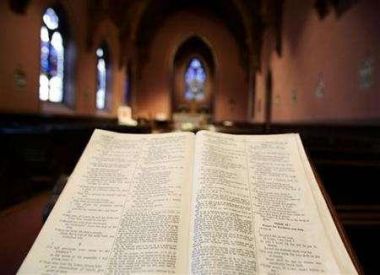Cain and Abel: What we get wrong about the first murder and why it matters

Q. Why didn't God accept Cain's sacrifice?
A. Because he wasn't Abel.
That, and variations on the theme, is right up there in the biblical humour stakes with "Who was the first tennis player in the Bible?" (come on, you know this – Moses serving in the courts of Pharaoh) and "Who was the smallest man in the Bible?" (you know this too: Bildad the Shuhite).
Funny or not (OK, it's really not), the old joke points to a truth that's sometimes ignored by preachers anxious to make Bible stories conform to their theology rather than letting them speak for themselves.
The story of Cain and Abel is told in Genesis 4: 1-16. It's one of a number of stories at the beginning of Genesis which deal with the deep things of how human beings have fallen away from God's intention for them.
Both of the brothers bring sacrifices to God. Abel, a shepherd, brings "fat portions from some of the firstborn of his flock", while Cain, a farmer, brings some of "the fruits of the soil".
We're told: "The Lord looked with favour on Abel and his offering, but on Cain and on his offering he did not look with favour" (verses 4-5).
In many commentaries it's suggested that this is because Abel brought a blood sacrifice and Cain didn't. The argument is that blood sacrifices are somehow better and more appropriate, because they prefigure the death of Christ, and that Cain should somehow have known this.
I'm not so sure about that.
I don't think that's what the Bible says. I think that people who take that line are looking for an explanation to justify what God did, and I don't think that the story offers one.
And I think that there's something profoundly true to life about that. In the story, Cain and Abel both bring offerings. Each of them has laboured and sweated to produce something that will feed and keep them, and each has brought some of it to dedicate to God.
One is acceptable, one isn't. In the story, there's no indication why.
Random inequality is part of life. Two people might start off with exactly the same advantages, go to the same school, each go to university and each get a good job. One successful, the other's a failure. One marries well, lives happily and has godly children. The other is deeply unhappy and never settles. One gets ill, the other stays healthy. One – well, you get the picture.
Job expresses his bewilderment at the disconnect between faith and prosperity. "Why do the wicked live on, growing old and increasing in power?" he asks (21:7). But that's how it is: we don't always know why things are as they are, or why one person prospers and another does not.
In the case of Cain and Abel, we're offered a kind of explanation in Hebrews 11:4, where the writer says: "By faith Abel brought God a better offering than Cain did. By faith he was commended as righteous..." In other words, it wasn't the blood sacrifice that counted but the faith in which it was offered.
But that's not much help to Cain. All he knows is that he's been rejected – and we should be very, very slow to conclude from Hebrews 11 that if we have enough faith everything will go well with us. The rest of that chapter should disillusion us of that.
What counts, is the Genesis story, is not what happens to us, but what we do with it. How do we respond when we're rejected, when our efforts are branded not good enough, when our plans go wrong and we see others getting the rewards we'd hope would be ours?
Here's what God says to Cain: "Why are you angry? Why is your face downcast? If you do what is right, will you not be accepted? But if you do not do what is right, sin is crouching at your door; it desires to have you, but you must master it" (verses 6-7).
It's a chilling picture of sin as some sort of wild beast or supernatural monster. It is lying in wait. It is deadly. It's a predator, looking to take us off our guard and consume us.
That's what happened to Cain. He allowed his resentment that things hadn't gone well with him to give the predator an opportunity, and it seized him.
There's a story in the New Testament that deals with the mismatch between what people seem to deserve and what they get. In John 9, we read about the healing of the man who was born blind. It begins with Jesus' disciples asking him, "Who sinned, this man or his parents, that he was born blind?" They're looking for an explanation, and the only one they can think of is that God must be punishing someone.
Jesus' answer shifts things on to a different level. He says, neither: instead, "this happened so that the work of God might be displayed in his life". In other words, there's no point in dwelling on what has happened to make things go so wrong. It's what you do with it that counts.
Cain made the wrong decision. Instead of glorifying God with repentance and love for his brother, he was overwhelmed by evil.
We'll never understand everything that happens to us, or why things go wrong as they do. But the same choice faces all of us: blame and resentment, or faith and trust.
Follow @RevMarkWoods on Twitter.











